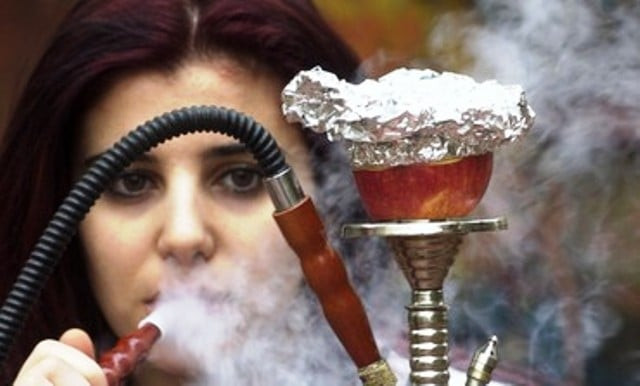The libertarian and the doctor in me have been at war with each other for some time, generating a tremendous deal of cognitive dissonance regarding the use of shisha.
I have recently begun leaning away from the ban. Here’s why,
The recent move by the Defense Housing Authority (DHA), Karachi to ban cafes from serving shisha has expectedly drawn some controversy.
I’ve personally never smoked shisha in my life (Hi mom! Thanks for reading my blog!) but I still believe I’ve acquired enough information about it to make a case against the ban.
The most obvious problem with the ban is that it applies only to cafés under DHA’s jurisdiction. Anybody wishing to smoke shisha can still find it elsewhere with ease. This means that the ban does little to deter youngsters (and well-informed, consenting adults) from saturating their lungs with Double Apple, while significantly hurting local businesses.
These café-owners are already considering taking DHA to court, and whether we’re rooting for them or not, we still understand why they’d feel the need to do so.
Nothing short of a city-wide, if not nation-wide, ban would have any noticeable effect on curbing shisha smoking. Regardless of how honourable the intentions, the ban would cause serious harm to local cafes, some of whom have earning their income and reputation almost solely on the sale of different varieties of shisha.
Do I even need to mention how oddly hypocritical it is to come out with pitch-forks against shisha while cigarette sales are nowhere near getting banned?
It is also rather distressing to have a discussion on banning shisha in the presence of our existing notoriety as “Banistan.”
From dance parties to YouTube, we have allowed collective outrage and moral hegemony to deny individual freedoms to an embarrassing extent. A shisha ban would only add to this humiliation.
A notable concern about our banning rampage is that we often fail to address the demand for an objectionable product, while concentrating merely on restricting the supply.
This does little except driving a lucrative market underground, where it not only continues to thrive, but becomes ungovernable and un-taxable too.
Should the concerned parents of Defense begin to rely on a shisha ban as a reasonable substitute for proper education and awareness-raising, they would have to brace themselves for a lot of disappointment.
Faraz, the libertarian has had his say; now Dr Faraz, the nark, must balance it out with a word of caution. None of what I have said thus far alters the reality that shisha smoking is dangerous.
In fact, with the prevalence of the myth about shisha being a safer alternative to cigarettes, it could prove to be even more harmful. While cigarette smoking is increasingly being stigmatised, shisha is thought to be its cooler, less offensive cousin when it is really just its equally malevolent twin.
Irrespective of what we feel about a ban on shisha smoking, we still have to deal with the scientific fact that this habit is not worthy of any encouragement.
If we are to oppose this ban, we ought to be ready to assume extra personal responsibility in preventing public health from going up in smoke.
Read more by Faraz here, or follow him on Twitter @FarazTalat.
Can't get shisha in DHA? Go somewhere else!
It is oddly hypocritical to come out with pitch-forks against shisha while cigarette sales are openly accepted.



COMMENTS
Comments are moderated and generally will be posted if they are on-topic and not abusive.
For more information, please see our Comments FAQ